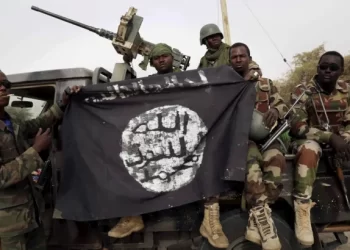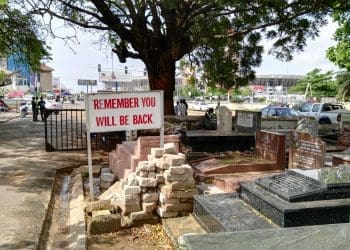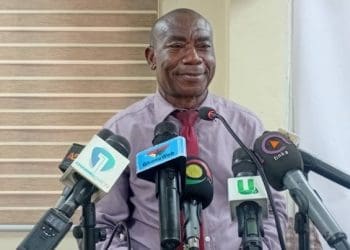Suspended Chief Justice of Ghana, Gertrude Araba Esaaba Sackey Torkornoo, has launched a stinging rebuke of the ongoing disciplinary proceedings against her, describing the process as a calculated assault on judicial independence and a “mockery of justice.”
In a supplementary affidavit filed at the Supreme Court registry in support of her motion for an interlocutory injunction, the embattled Chief Justice contended that the inquiry initiated by the President and led by Justice Gabriel Pwamang has violated her constitutional rights and aims to unjustly oust her from office.
Justice Torkornoo filed the motion on May 21, 2025, naming the Attorney-General and five other individuals — including two sitting Supreme Court Justices — as respondents.
“The whole proceedings initiated against me are a mockery of justice and a ruse to unjustifiably remove me from office as the Chief Justice,” she stated.
Claims of due process violations
The Chief Justice alleges a pattern of disregard for legal safeguards and due process throughout the committee’s work. According to her affidavit, she has yet to be informed of the specific allegations against her or the legal grounds upon which a prima facie case was established.
She further criticised the committee’s decision to proceed with its inquiry despite being officially notified on May 22 of her pending legal action before the Supreme Court.
Perhaps most troubling, she said, was the committee’s refusal to recognise her legal representation at a May 19 hearing on the grounds that she was not physically present—despite the same lawyers having received official notice of the sitting only the day before.
“The committee’s conduct desecrates my right to a fair trial and subjects me to inhuman and degrading treatment, of a kind not meted out even to persons on trial for treason,” Justice Torkornoo said in the filing.
No face-to-face testimony from petitioners
The Chief Justice also questioned the credibility and fairness of the inquiry process, citing the committee’s refusal to have the petitioners testify in person.
According to her, this departure from the standard rules governing commissions of inquiry undermines the transparency and legitimacy of the proceedings.
“Instead of allowing the petitioners to testify, the committee has chosen to call other witnesses on their behalf—an approach completely offensive to known rules of procedure,” she stated.
Claims of degrading treatment and intimidation
In addition to procedural concerns, Justice Torkornoo said she has been subjected to degrading treatment at the hands of the committee.
She recounted that during the hearings, her husband and children were denied entry into the room. She and her lawyers were subjected to body searches and barred from bringing in mobile phones or laptops—restrictions that did not apply to the lawyers for the petitioners.
She also took issue with the hearing venue, held not at a court or neutral venue but within a high-security zone in the Castle area of Osu. She described the location as “unprecedented” for Article 146 proceedings and suggested it was chosen deliberately to cause “mental torture.”
A plea for judicial independence
Justice Torkornoo’s affidavit strongly appeals to the Supreme Court to step in and halt the process. She warned that failing to do so could have dangerous implications for the judiciary as a whole.
“I respectfully pray for this Honourable Court’s intervention… to prevent the assault on judicial independence and protect the security of tenure of the Chief Justice and Justices of the Superior Courts of Judicature at play in the instant case,” she pleaded.
The respondents
The legal challenge lists Attorney-General, Justice Gabriel Pwamang, Justice Samuel Kwame Adibu Asiedu, Former Auditor-General Daniel Yao Domelevo, Major Flora Banaanura Dalugo and Professor James Sefah Dzisah as respondents.
A controversial suspension
Justice Torkornoo was suspended from her role as Chief Justice by President John Dramani Mahama on April 22, 2025.
The suspension followed the submission of three petitions calling for her removal, in accordance with Article 146(10) of the 1992 Constitution.
The first petition was submitted on February 14 by a group calling itself Shining Stars of Ghana, signed by Kingsley Agyei, its chair and convenor.
The second came from Daniel Ofori on March 17, 2025. His petition outlined 21 allegations of misconduct and four of incompetence, focusing largely on the Chief Justice’s administrative performance.
The third petition was submitted—also on February 14—by Assistant Commissioner of Police Ayamga Yakubu Akolgo, a senior officer at the National Police Headquarters in Accra.
The President subsequently referred the matter to a committee chaired by Supreme Court Justice Gabriel Pwamang for further inquiry, leading to the current legal and political standoff.
A case with far-reaching implications
With Ghana’s top judicial officer now battling to retain her position while simultaneously defending the integrity of the entire justice system, the case is poised to become a defining test of the nation’s commitment to judicial independence and constitutional governance.
The Supreme Court’s ruling on the motion for injunction is expected to set a precedent that could either reaffirm or severely undermine the judiciary’s autonomy in Ghana’s democratic framework.












